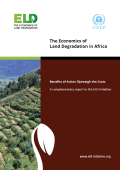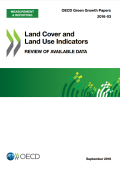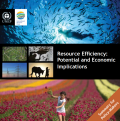
Land degradation and desertification are among of the world’s greatest environmental challenges. It is estimated that desertification affects about 33 % of the global land surface, and that over the past 40 years erosion has removed nearly one-third of the world’s arable land from production. Africa is particularly vulnerable to land degradation and desertification, and it is the most severely affected region. Desertification affects around 45 % of Africa’s land area, with 55 % of this area at high or very high risk of further degradation.

This paper identifies opportunities to refine OECD’s indicators of land cover and land use and their regular production for all OECD and G20 countries. A comprehensive review is conducted of the available datasets at the global, regional and national levels, including data derived from remote sensing as well as those complemented with administrative and survey data. The datasets are assessed in terms of their geographic coverage, periodicity, spatial resolution, data reliability and comparability. The paper discusses the potential use of such datasets for the production of indicators that are harmonised across countries and over time. It is found that data on land cover are widely available and that many OECD countries have good-quality national land cover datasets, in some cases consistently over time. However, considerable differences have been found among the land cover products reviewed in terms of their geographic coverage, spatial, temporal and thematic resolution. For eight countries, no country- or region-specific data could be found (including Israel, Korea, Colombia, Costa Rica, India, Indonesia, the Russian Federation and Saudi Arabia).

This document elaborated by the Global Green Growth Institute (GGGI) and the German Development Institute (DIE) conducts an in-depth exploration of the statistics of the National Household Surveys (ENAHO) 2004-2013 and disaggregates essential information on the conditions of the populations that depend on the forest for their welfare.
This analysis conducted by the Global Green Growth Institute (GGGI), the German Development Institute (DIE) and UNIQUE examines the growth potential for timber products nationwide and provides detailed recommendations in four priority chains: pre-sized dry sawnwood, fiberboard and particleboard, pallets, and wooden furniture.
